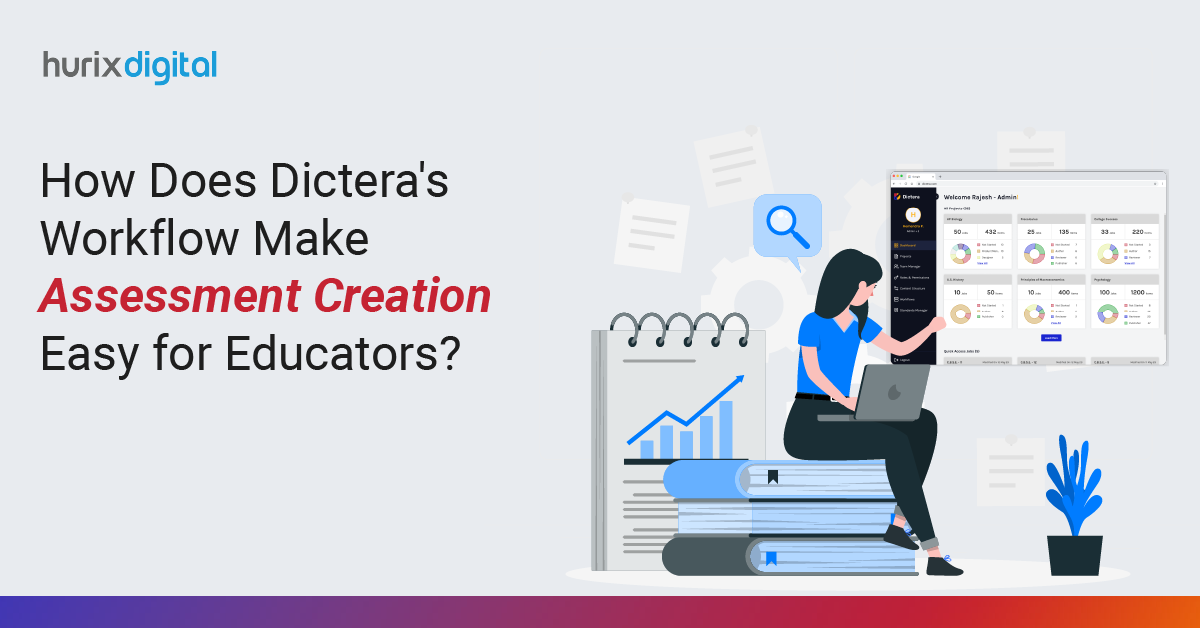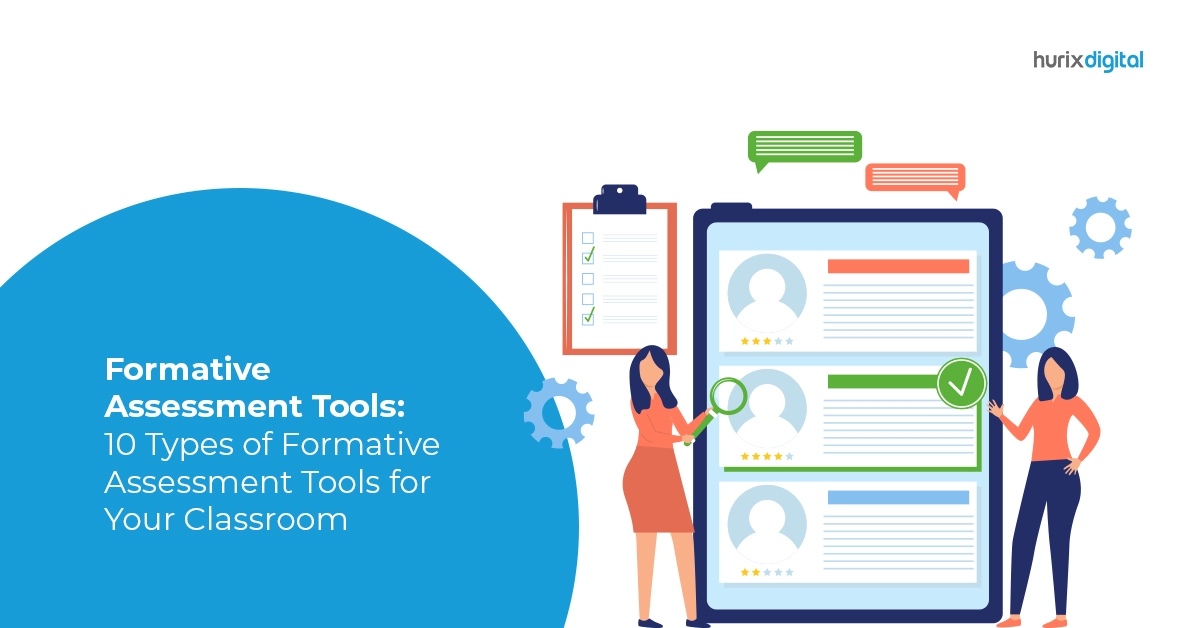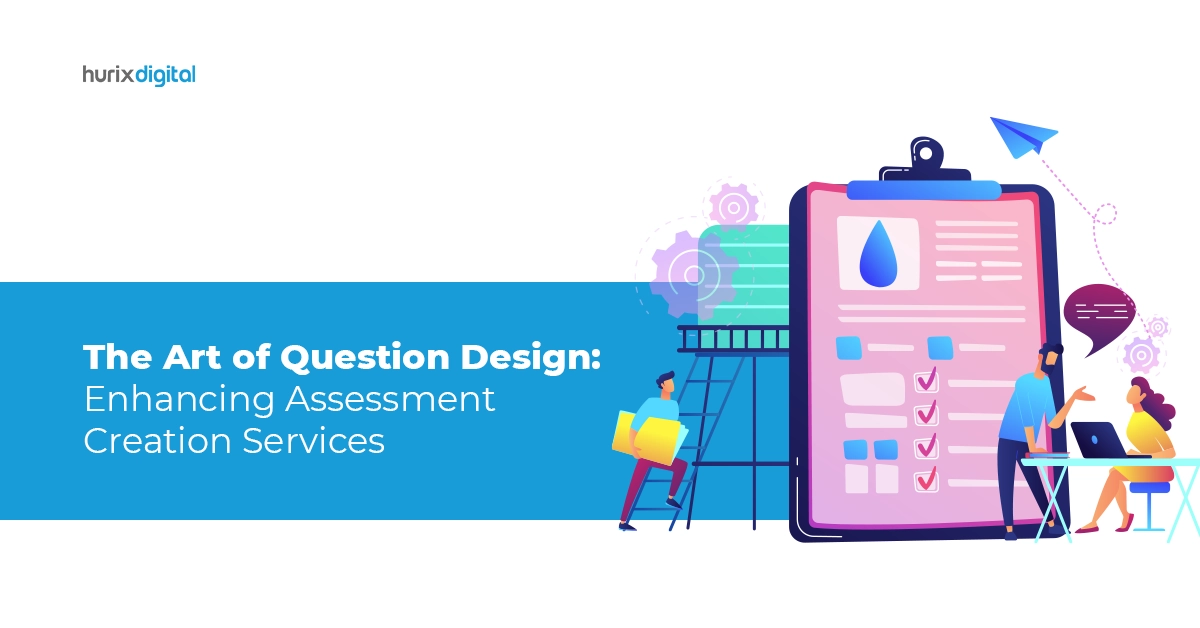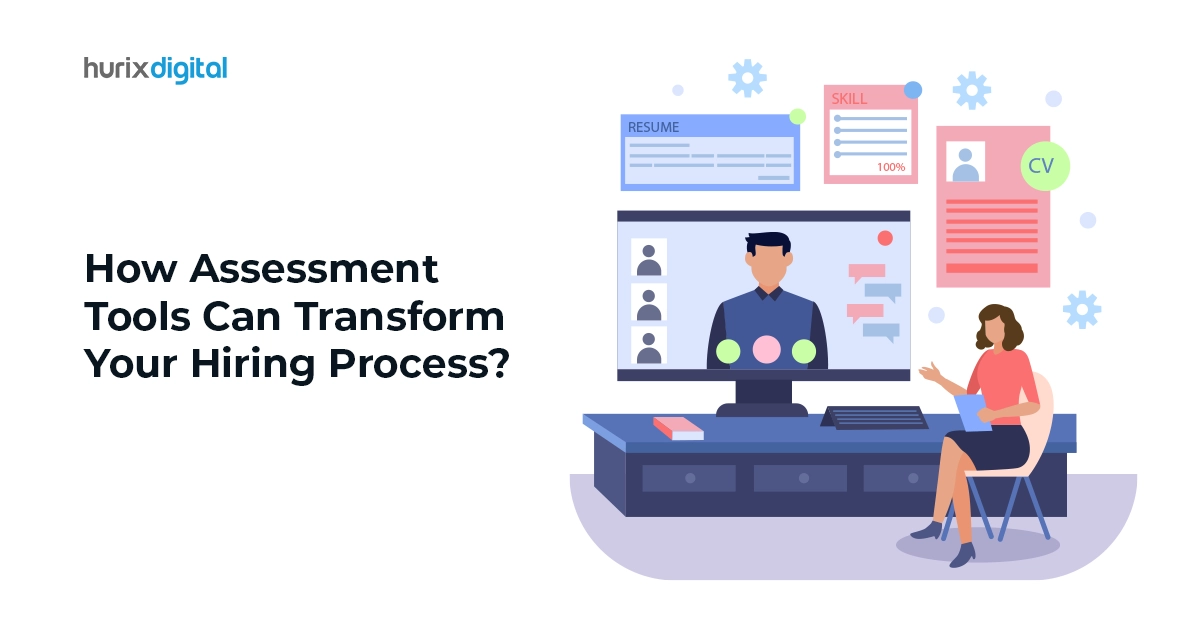
How Does Dictera’s Workflow Make Assessment Creation Easy for Educators?
Summary
This blog explores Dictera, an AI-powered assessment tool that streamlines creating high-quality assessments for educators through features like personalized challenge levels, automated scoring, easy collaboration, and detailed reporting.
One of the key components that characterizes successful online experiences in the eLearning space is the creation of efficient assessments.
Understanding the significance of creating smooth assessments in eLearning and how to optimize them can greatly improve the caliber of your content or courses, regardless of your background as an educator, learning and development specialist, or instructional designer.
Online assessment tools, such as Dictera, play an important role in achieving this. One of the best assessment generators available on the market, Dictera makes the process of assessment generation much simpler while also reducing the administrative burden on educators.
In this post, we will explore more about Dictera, its key features, and how educators can use it to automate and streamline the assessment creation process.
Table of Contents:
- What is Dictera and How Does it Work?
- How Does Dictera’s Workflow Make Assessment Creation Easy for Educators?
- Wrapping Up
What is Dictera and How Does it Work?
Dictera is a top assessment tool that uses automated technologies like machine learning (ML) and artificial intelligence (AI). The program may generate tests, quizzes, surveys, assessments, and a variety of other eLearning materials.
Dictera’s workflow’s main selling point is that it uses the latest automated technology to simplify the process for educators creating assessments. The platform also allows you to integrate and gamify the challenges and rewards related to assessments for better learning experiences.
Overall, Dictera is an innovative AI assessment generator that facilitates the easy and fast generation of assessments, quizzes, tests, and educational materials. The tool has various interesting features that make it a far better assessment generator than other traditional assessment authoring tools.
Below are some key features of Dictera and how they enhance the assessment creation process:
- Simple Multimedia Integration: Dictera makes it simple to add multimedia components (pictures, videos, and audio) to your tests, which contributes to the creation of more dynamic and interesting learning environments.
- Improved Automation: Automated elements that save time and guarantee consistency in your examinations include scoring, feedback, and question development.
- Higher Creative Flexibility: This assessment tool gives you the creative freedom to design assessments with various question types, difficulty levels, and personalized learning paths tailored to meet the needs of all learners.
- Improved User-Friendly UI/UX: Thanks to its user-friendly interface, teachers can easily use the platform and create and manage assessments without the need for technical knowledge.
- Large Selection of Templates: Dictera provides a wide range of templates for various assessment types. These templates may be tailored to any subject or learning objective, which speeds up and improves efficiency.
Also Read: The Power of Human Touch & AI in Making Successful Assessments
How Does Dictera’s Workflow Make Assessment Creation Easy for Educators?
Dictera makes the process of assessment creation easy for educators in multiple ways.
Here’s a snapshot of how its workflow supports teachers:
1. Personalize Levels of Challenges
When it comes to eLearning, it is important to cater to various students with different learning styles and abilities, as scoring or assessing them using a static assessment method may be challenging for educators.
On this note, Dictera offers several features that educators can use to customize the level of challenges to establish a fair space for every learner to compete fairly.
Dictera’s workflows are designed to adjust the level of challenge depending on the aptitude of the student taking the test. For instance, unlike a standard assessment generator, this assessment tool allows for the creation of a steady assessment, which is a more favorable way to help a student with impaired learning progress.
2. Simplify the Categorization of Questions
Another important feature of Dictera is the ability to add several question types for the quiz or assessment, which facilitates and expedites the assessment generation process.
This implies that you can build an evaluation that suitably highlights the course students have studied by using various question types, such as multiple-choice, short answer, long answer, fill-in-the-blank, etc.
The benefit of this type of question categorization is that it helps with setting the accurate timeline for the assessment based on the variety of question types included in it. Likewise, you can also adjust the level of difficulty for each of these assessments from basic to advanced to be able to generate assessments that are inclusive of all types of learners or students in the classroom.
3. Make Collaboration Easier
For educators looking to streamline the assessment generation process, Dictera offers an excellent automated tool that empowers educators and other L&D professionals to collaborate easily on designing assessments.
Using Dictera, educators can collaborate during assessment generation by:
- Assigning tasks and roles to each other and establishing key milestones
- Monitoring progress easily
- Making real-time collaboration simple for everyone to stay on the same page.
These functionalities are especially beneficial when designing assessments for different subjects simultaneously. They allow you to bring together SMEs or subject matter experts of various disciplines to collaborate quickly on creating high-quality and relevant assessments.
4. Automated Scoring
One of the most challenging aspects of the assessment generation process is scoring the assessment. Scoring every single copy of the test or assessment requires too much detailing and concentration to ensure fair grading. Digital assessment tools for teachers come in handy here.
Dictera is an excellent tool that automates assessment scoring, thus saving time and reducing the burden on educators and other L&D professionals.
Apart from helping you save a great deal of resources, automated assessment scoring ensures fairness and consistency throughout the process. Likewise, Dictera is also equipped to handle massive volumes of assessments together, thus making the whole process faster.
5. Easy Reporting
Automated reporting is another benefit of Dictera that can help you streamline the assessment creation process. The tool allows you to analyze your audience’s responses in real time using detailed visual reports and leverage them to improve your content.
Apart from this, Dictera allows you to
- Track your views, starts, and completions with detailed performance reports.
- Gain deeper insights from result reports
- Compare answers in multiple forms with answer reports.
Also Read: Generate 100% Authentic Assessments with Dictera’s AI Plagiarism Checker
Wrapping Up
If you’re an educator seeking to simplify the assessment creation process, Dictera by Hurix Digital is an outstanding solution. Its AI-powered features, such as personalized challenge levels, automated scoring, seamless collaboration, and in-depth reporting, make it a powerful tool for streamlining assessment creation.
Dictera saves time, reduces administrative overhead, and enhances the overall learning experience, making it an essential tool for educators looking to create high-quality assessments quickly and efficiently.
With Dictera, you can focus on what truly matters: delivering exceptional learning experiences. Want to learn more? Our team would be happy to assist you with any questions you might have or provide a personalized demo of how Dictera can meet your specific needs.

Currently serving as the Vice President of Technology Delivery Operations at HurixDigital, a prominent global provider of digital content and technology solutions for publishers, corporations, and educational institutions. With over 16 years of experience spanning EdTech and various domains, I hold certification as a SCRUM Product Owner (CSPO). My expertise includes operations, finance, and adept people management skills.








